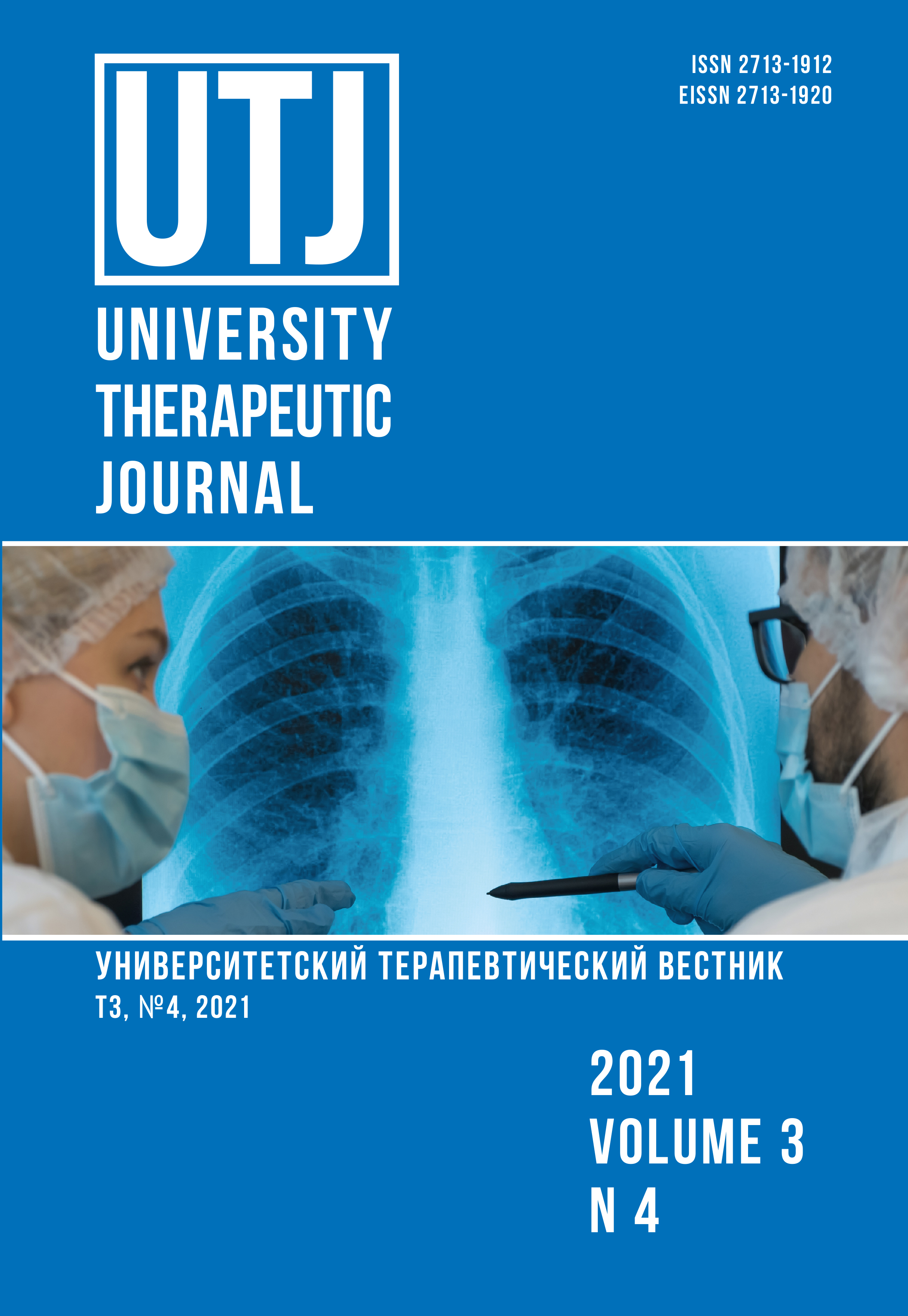Intestinal microbiota disorders in adults with celiac disease
Abstract
The aim: to assess the presence of microbiota disorders, the degree of their severity in adults with celiac disease, correction of the detected disorders using probiotic therapy. Materials and methods: 45 patients with celiac disease aged from 16 to 62 years were under observation. All patients underwent: standardized questioning to identify and clarify the nature of complaints, general clinical minimum, stool examination for dysbiosis, psychological examination (determination of levels of anxiety, neuroticism, depression), assessment of life quality using a quality of life questionnaire on a validated SF-36 scale. The assessment of the presence of microbiota disorders and the degree of their severity was carried out based on the results of fecal analysis for dysbiosis. Determination of the effectiveness of the correction of disorders of the intestinal microbiota with the help of means to normalize the microflora was evaluated by the following indicators: by the dynamics of subjective clinical symptoms, by the dynamics of the analysis data for dysbiosis and the results of psychological examination. The obtained data were processed statistically, their analysis and comparative analysis were carried out. Results. The study of feces for dysbiosis in patients with celiac disease revealed a significant decrease in the anaerobic and aerobic components of the microflora. Against the background of probiotic therapy with synbiotic, which included active living cells of lactobacilli and bifidobacteria and a balanced composition of prebiotic substances, there was a significant improvement in both the anaerobic flora and the aerobic component of the microflora, as well as a reduction in pain and dyspepsia, improved stool consistency, decreased levels of neuroticism, anxiety and depression, increased indicators of physical and psychological components of health.. Conclusions. Adults with celiac disease have pronounced dysbiotic disorders of the qualitative and quantitative composition of the colon microflora. The use of probiotics in this category has a positive effect on the relief of clinical symptoms, reduces the levels of anxiety, neuroticism and depression and improves the quality of life.


